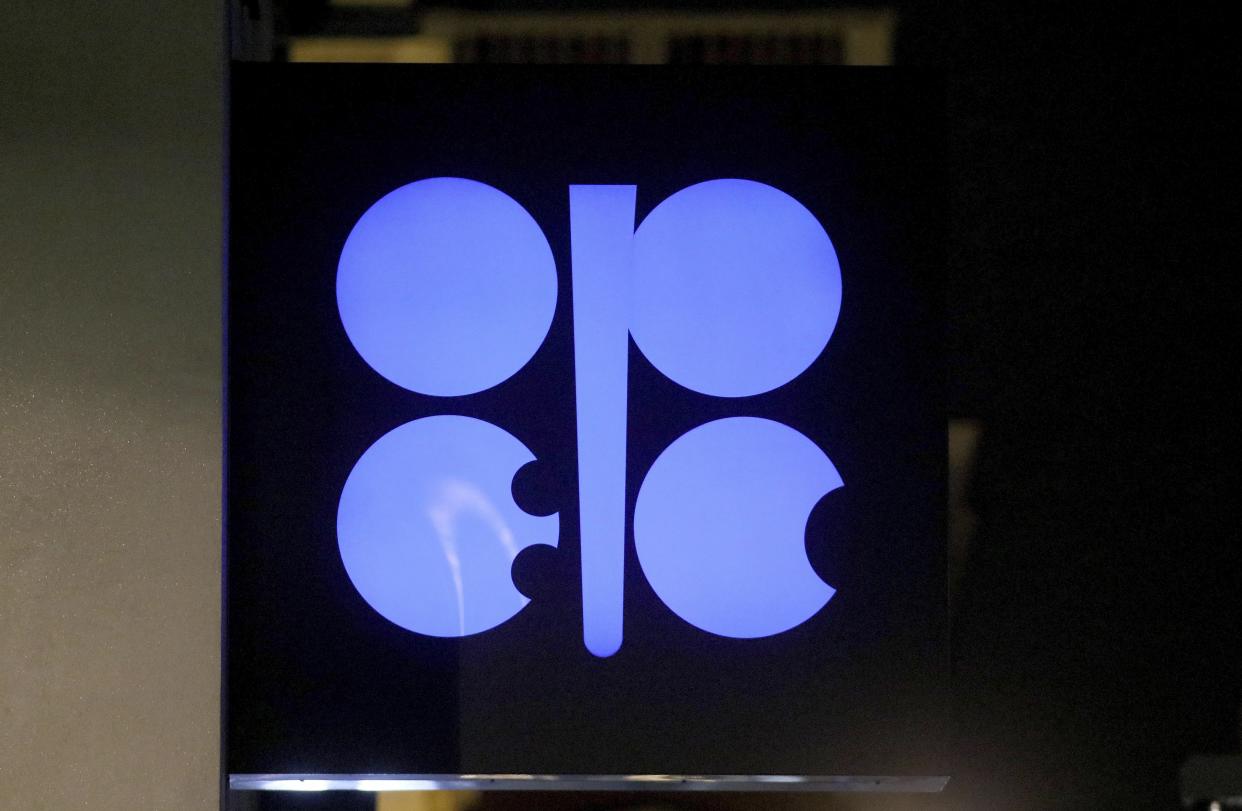What to Watch: OPEC meeting, Flybe collapse, and stocks slip

Here are the top business, market, and economic stories you should be watching today in the UK, Europe, and abroad:
OPEC leaders meet
OPEC leaders will begin a two-day meeting in Vienna today to discuss whether to cut oil production in response to the coronavirus epidemic.
Oil prices have fallen from around $65 per barrel at the start of the year to $50 per barrel today. The price slump follows the closure of factories across China and plummeting demand for air travel globally. Both phenomenon are linked to the spread of coronavirus around the world.
OPEC is widely expected to cut oil output from its members in a bid to shore up prices.
“Investors have largely priced in an oil supply cut, but one thing they are not sure about is if the cartel would also surprise traders by introducing a much deeper cut,” said Naeem Aslam, chief market analyst at Avatrade.
“However, given the fact that Russia resisted the idea of cutting the supply earlier, it is difficult to consider a situation where we get deep cuts.”
Brent (BZ=F) was down 0.7% to $50.73 and crude (CL=F) was down 0.8% to $46.37.
Flybe collapses
The impact of coronavirus pushed the already flagging Flybe into administration on Thursday morning, immediately grounding all of the airline’s flights and putting around 2,400 jobs at risk.
Eleventh-hour talks with the UK government failed to help Flybe secure a £100m ($128m) loan required to keep the regional airline afloat.
Administrators from financial services firm EY have been appointed to oversee the process.
“Europe’s largest independent regional airline has been unable to overcome significant funding challenges to its business,” Flybe said in a statement.
“This has been compounded by the outbreak of coronavirus which in the last few days has resulted in a significant impact on demand.”
Stocks slip as California declares state of emergency
Stock markets across Europe fell on Thursday, having posted gains in the prior session. The FTSE 100 (^FTSE) slipped by 1.5%, the German Dax (^GDAXI) was down 1.4%, and the CAC 40 (^FCHI) in France fell 1.5%.
US stocks had surged overnight — with the Dow closing 4.5% higher — but futures were pointing to a lower open.
S&P 500 futures (ES=F) and Dow Jones futures (YM=F) were off 1%, while Nasdaq futures (NQ=F) were 1.1% lower. It comes after California declared a state of emergency linked to an outbreak of coronavirus in the state.
On Wednesday, Congress approved $8.3bn (£6.5bn) in emergency funding to tackle the spread of coronavirus, the IMF announced it would make $50bn available to fight COVID-19, and the World Bank pledged $12bn in emergency funding.
John Lewis cuts bonus for seventh year in a row as profits dive
John Lewis Partnership has cut its bonus payout to staff to the lowest level in almost 60 years as profits continue to slide.
John Lewis Partnership, which owns the John Lewis department store and Waitrose supermarket, said staff would receive 2% of salary as a bonus this year, down from 3% last year.
It marks the seventh year in a row that John Lewis has cut staff bonuses and the lowest bonus since 1953. The award was as high as 18% in 2011.
The bonus cut came as John Lewis Partnership reported a 23% slump in profits to £123m. Sales fell by 1.5% to £11.5bn ($14.7bn).
Chair Sharon White said it was “a weaker performance than we had hoped for, driven by significantly reduced profitability in John Lewis.” She said the bonus payout was “prudent and affordable” and would still allow the business to invest.
Love Island and The Masked Singer boost ITV
Hit shows such as Love Island and The Masked Singer helped ITV (ITV.L) to buck an advertising slowdown last year and post rising revenue.
ITV said on Thursday that revenue rose 3% to £3.3bn ($4.2bn) in 2019. That was better than the market had forecast.
Earnings for the year fell by 10% to £729m. ITV said the decline was down to investments made in digital.
The rise in revenues came despite an advertising slowdown. Ad sales shrunk by 1.5% in 2019 to £1.76bn. However, revenue at its ITV Studios business, which produces shows for ITV and other broadcasters, rose 9% to £1.8bn. Online advertising revenue also rose by 21%.
ITV warned advertising revenues are expected to slump by 10% next month as a result of coronavirus, which is putting off holiday companies from advertising.
Former top Goldman Sachs banker officially joins Revolut
Goldman Sachs’s (GS) former top man in Europe has joined the board of fast-growing fintech startup Revolut.
The company said on Wednesday that Michael Sherwood last week took up a position as non-executive director at the startup.
Sherwood, who is nicknamed Woody, spent three decades at Goldman Sachs. He was co-chief executive of the investment bank’s international arm until November 2016 and served as vice-chairman of the bank.
The Londoner was Goldman’s most prominent banker in Europe and was notably hauled before MPs in 2016 to answer questions on the bank’s role in the collapse of department store BHS. Sherwood retired from the bank shortly after and said he would focus on charitable activities.

